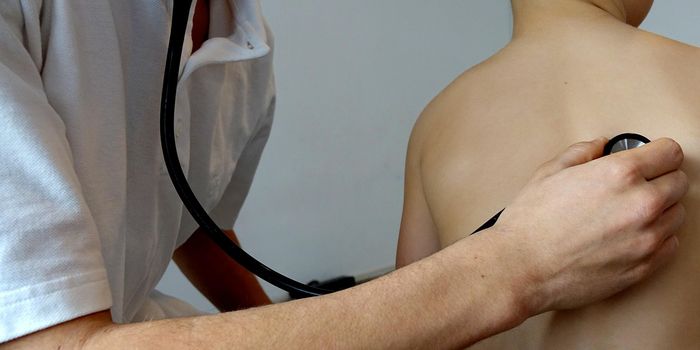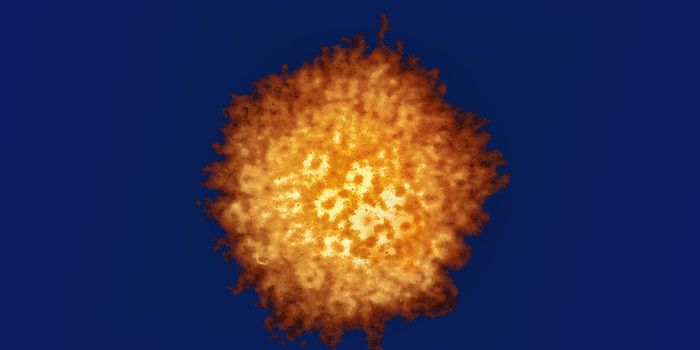A New Way to Defend Against Mosquito-Borne Viruses
Mosquitoes are killers; they are thought to be responsible for the deaths of millions of people every year because of the diseases they can spread with their bites. While malaria, a parasitic infection, is one of the deadliest diseases caused by mosquito bites, these pests also carry dengue, Zika, and West Nile viruses. Around 390 million people are thought to be infected with dengue globally every year. New research may help reduce that number and may help people stave off these illnesses.
Reporting in Science, researchers have identified an antibody that improved the chance that people would survive mosquito-borne viruses and lowered viral levels in the blood.
"We made a discovery in 2015 in the wake of the Zika outbreak that identified a new target for flavivirus treatments, a viral protein called NS1," explained Associate Professor Daniel Watterson from the University of Queensland's (UQ's) School of Chemistry and Molecular Biosciences. "Now we've shown for the first time that a single NS1 antibody can be protective against multiple flaviviruses including dengue, Zika, and West Nile. No other antibody reported has shown such a broad range of protection. The improved protection we saw compared to existing treatments was really unexpected."
Of the nearly 400 million people that get dengue every year, about half go on to develop a more serious form of the disease, which may kill them. Developing a vaccine for the disease has been difficult because it's one of the rare disorders in which the immune system can actually act to help the virus get into cells instead of learning to fight it off. People that are infected again tend to fare worse the second time.
"Creating vaccines and therapies has been greatly hindered because antibodies that target the main viral envelope protein can also enhance disease. This phenomenon is called antibody-dependent enhancement (ADE) and contributed to the complications arising from [the] large-scale roll-out of the first licensed dengue vaccine. But because NS1 antibodies don't drive ADE, our findings provide the blueprint for new and safe broad-spectrum vaccines against multiple flaviviruses, including dengue," explained Watterson.
"The antibody binds to a wide range of flaviviruses including Usuto virus in Europe, and Rocio and Ilheus viruses in South America," said the lead study author Dr. Naphak Modhiran of UQ.
Modhiran noted that the antibody might work as a first line of defense in viral outbreaks that might occur in the future in various parts of the world. "These viruses have already caused local outbreaks in the past and have the potential to be the next Zika."
"Since then, they have provided numerous insights into the biology of dengue and have been employed in the development of diagnostics," added study co-author Professor Paul Young. %he antibodies were first developed about thirty years ago in his group. "It's great to see them now progressing as potential templates for therapeutics. This highlights the critical nature of discovery research in providing the foundation for translation into clinical practice."
Sources: AAAS/Eurekalert! via University of Queensland, Science




![Everything You Need To Know About NGS [eBook]](https://d3bkbkx82g74b8.cloudfront.net/eyJidWNrZXQiOiJsYWJyb290cy1pbWFnZXMiLCJrZXkiOiJjb250ZW50X2FydGljbGVfcHJvZmlsZV9pbWFnZV9mNTM1ZjIyYzA5MDE5ZmNmMWU5NmI0ZDc4NWU2MzdiZTZlN2I5ZDk5XzE4NDUuanBnIiwiZWRpdHMiOnsidG9Gb3JtYXQiOiJqcGciLCJyZXNpemUiOnsid2lkdGgiOjcwMCwiaGVpZ2h0IjozNTAsImZpdCI6ImNvdmVyIiwicG9zaXRpb24iOiJjZW50ZXIiLCJiYWNrZ3JvdW5kIjoiI2ZmZiJ9LCJmbGF0dGVuIjp7ImJhY2tncm91bmQiOiIjZmZmIn19fQ==)



